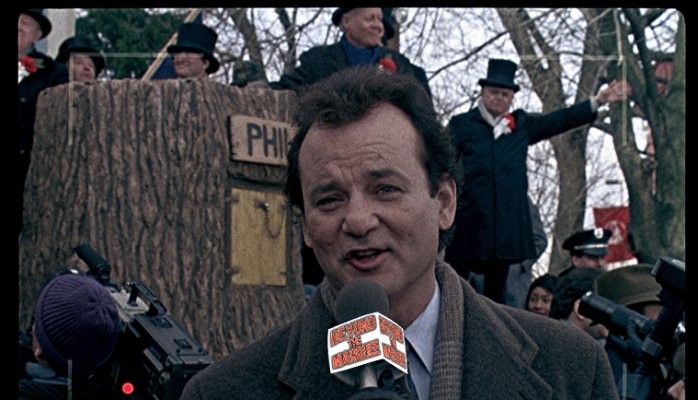
The "Science" in "Social Science" is Real
One of my favorite jobs that I had during my college tenure was serving as a tour guide and ambassador for the NYU Office of Undergraduate Admissions. While I was there, I got to speak to anywhere from a few dozen to a few hundred students each week, discussing the university and why I believed it deserved their consideration.
Why was it at the top of my list? Sure, I enjoyed it for the free NYU track jacket that came with it (status symbol on campus), but I also learned to love it for the free chance to meet people, talk to them, and see how people reacted to me and my communication style. I felt like giving tours was akin to the movie 'Groundhog Day', where I could take each experience, keep what worked, ditch what didn't, and move forward. Some days went awesome, some days bombed, but I always found something to take away from each interaction.
This same model became something that I saw in the full time career setting, with opportunities during each consulting engagement to utilize different communication techniques and approaches, learning what worked and what didn't. While each client situation was different, the social situations had a tendency to repeat themselves, allowing for the same kind of development.
Recently, more students and junior consultants with technical/hard sciences backgrounds have started speaking with me about their desire to get better in the communication and relationship building area of their job, and it makes me so happy. The reason? Traditionally, these individuals seem to find clear direction on how to up their technical know-how, but the soft skills oft get passed over as a "you have them or you don't" kind of trait; of course, that couldn't be farther from the truth. Just because social sciences have the word 'social' in front of them doesn't make them any less scientific. Much research has been done in the area of interpersonal skills and skillbuilding, and those looking to start of their career should have similar direction in how to brush up in these areas.
Here are a few of the actionable steps that I recommend that those people do in order to set themselves on the right track:
- Find yourself a "safe" space for this development - I had the Office of Undergraduate Admissions as a learning opportunity for me to engage in public speaking and networking. Other people can and should find a similar outlet if they really want to work at it. Another that I often point people to is Toastmasters, a club hosted by many corporations and organizations to allow development of public speaking skills. Take a search for a chapter near you; there may even be one in your office if you're lucky. The dues are relatively small, and the returns on a captive audience providing you input on how you can improve are huge. (Key here is to find a space that is truly "safe" feeling to you...a place that is no risk or low risk to you, a place where falling on your face will be something to laugh about and not something to lament for the rest of your career).
- Learn a quick personality test or two...and find opportunities to apply them - Whether a simple personality breakdown (such as the expressive/amiable/analytical/driver framework) or a more extensive analytical methodology (like the 16-category Myers-Briggs), being able to identify your own working style and those of your colleagues is a handy skill for organizing how you approach situations. When you walk into a conversation, you can more quickly adapt your communication style to put your target at ease.
- Practice, Practice - Learning how to do anything requires practice. Sports and physical activities require practice to build muscle memory; cognitive skills work the same way. Each time you go through a conversation, you are getting "cycles" in improving your interpersonal arsenal. Looking back to my NYU Admissions example, I spoke to hundreds of people a week; that's hundreds of data points to add to your personal experience.
A parting word of caution: My Little League baseball coach always cautioned my team that the true phrase was not "practice makes perfect", rather "practice makes permanent". How we rehearse and how we practice dictates how we will perform when it matters. Applied in the business setting, gaining experience in honing your soft skills only proves effective to the extent that you take the time to reflect on what went well and what didn't. Action without reflection will only lead to the same actions and same outcomes. Try to give yourself time at the end of each day or week to identify situations that went well and others that could have gone better. In doing so, you solidify your learnings and help yourself in another way: having a stronger level of self awareness.
In short: Soft skills can be hard for some, but the challenge is not unsurmountable if you give yourself the time and avenues to develop.
(I could take an aside here to speak about how often I get questioned for the work applicability of an "organizational psychology" degree...many ask this question for the same reason: they downplay the relevance of studying and practicing to people skills. Hoping that this list of pointers also helps clarify.)
Executive Consultant
8yThanks Rob, great article. I couldn't agree more. I used my time as handball coach to improve my communication and public speaking skills in a safe setting. It is not easy to capture a groups attention and interest if you meet them three times a week and sometimes every day trying to teach the same topic again and again. Every individual on the team needs a little different approach when it comes to personal interaction, specially when it is about performance and motivation. With the weekend games I had a very good indicator of what worked and more important what didn't work.